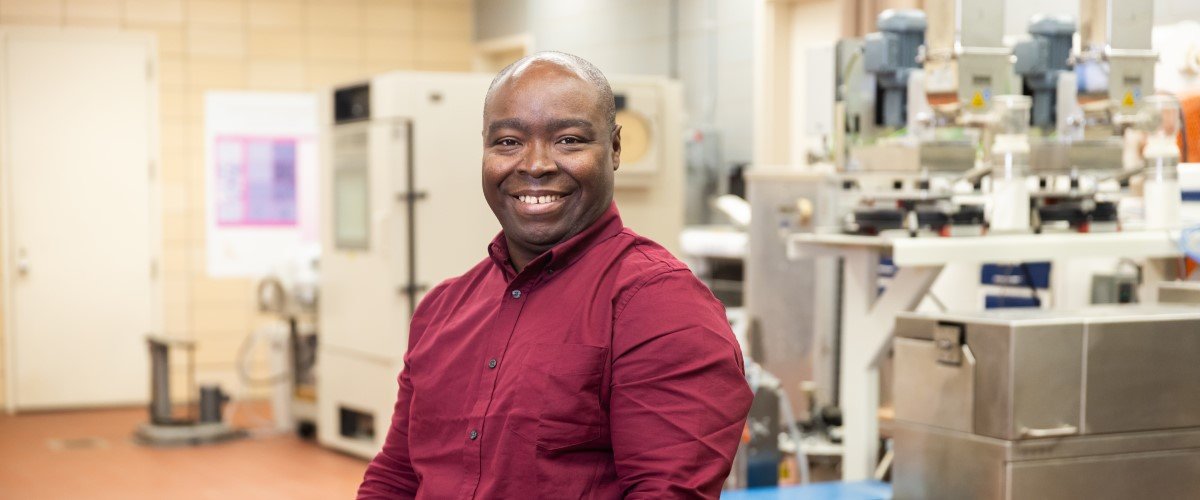
Feeding the world through food science

George Annor, PhD, is an associate professor of cereal chemistry and technology in the Department of Food Science and Nutrition. He also is the chair for the General Mills Endowed Professorship in Cereal Chemistry and Technology.
A significant impact
My interests in agriculture and food sciences were initiated by my late father who convinced me to study food science. He thought I could make significant impacts in this world by contributing to feeding the ever increasing world population. He was also of the view that as long as people ate, there was always going to be a job for those in the area of food science, including me. I have also always been passionate about understanding how foods are transformed from raw materials to finished products and the science behind these transformations.
Choosing CFANS
Minneapolis is known as an international center of food manufacturing and research. To me, as a food scientist, working at the U of M and CFANS give me the best opportunity to engage all these food companies in the city.
Applying his research
My research focuses on components of cereals and grains and how they are affected by breeding, agronomical practices, and nonthermal processing techniques. I have been collaborating with faculty in the Department of Agronomy and Plant Genetics to explore the food and functional characteristics of new and novel cereal, protein, and oilseed crops. I am part of the Forever Green Initiative team working on exploring the potential end-uses of intermediate wheatgrass (Kernza), a perennial crop known for producing ecosystem services. With respect to nonthermal processing, my research group has been evaluating the use of atmospheric cold plasma for food processing.
Advice for CFANS students of color
Food science is a very interesting field of study. For those interested in working in the food industry, a degree in food science will offer you the opportunity to be part of this unique industry. A degree in food science will also give you the opportunity to work in government agencies such as the USDA and Minnesota Department of Agriculture. You could also be in academia like me.
In Advancing Agriculture, members of CFANS’ Black community share their pathways in agriculture. From student researchers to faculty members and alumni, their contributions have an impact here in Minnesota and around the world.








